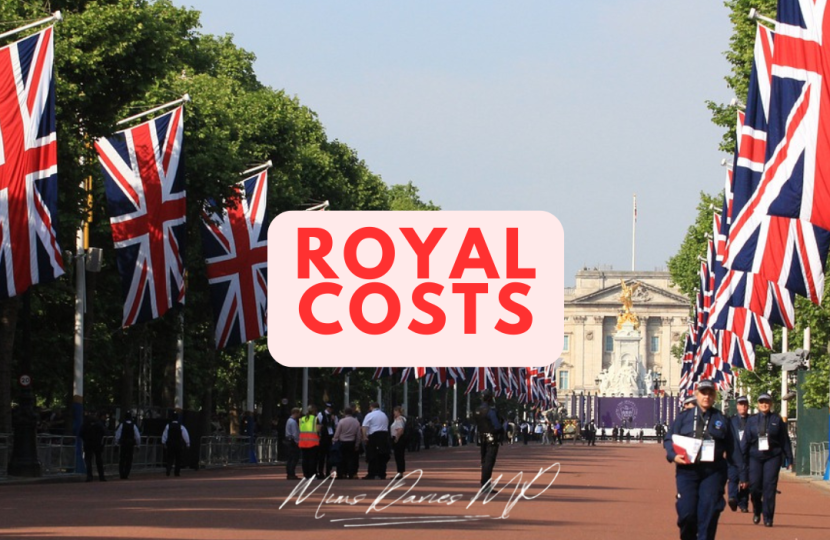
Before addressing the specifics of how the Royal Family is funded, I would like to make my support for the institution clear along with my belief that they should receive some form of funding. His Majesty the King plays a significant constitutional and representative role that we should not underestimate. Nevertheless, I do appreciate concerns about how public funds are used.
The Royal Family have three main sources of income: the Sovereign Grant from the Crown Estate, the Duchy of Lancaster, and the Duchy of Cornwall.
The Sovereign Grant is the funding provided to support the official duties of The Sovereign and maintain the Occupied Royal Palaces. The Sovereign Grant is provided by HM Treasury, which is also responsible for monitoring how it is used. As of 2024/25, Sovereign Grant comprises 12 per cent of the Crown Estates' net profits, down from 25 per cent. Cutting the rate to 12 per cent was estimated to reduce the Sovereign Grant by £24 million in 2024/25. Under this system, the Royal Household is subject to the same audit scrutiny as other Government expenditure, via the National Audit Office and the Public Accounts Committee. Each year, the Royal Household publishes a summary of Head of State expenditure, together with a full report on royal public finances. The most recent report can be downloaded here: Financial reports 2022-23 | The Royal Family
These official sources of funding are used entirely to support the King’s work as Head of State. This means that the money goes towards a number of resources which enable His Majesty to carry out his official duties. These include travel for official engagements in the UK and overseas; the maintenance of royal residencies which are used for formal entertaining and ceremonial events; salaries for employees of the Royal Household; and administrate the work of His Majesty as Head of State.
The two duchies are private estates and, as such, are separate from the Crown Estate; this is the key issue I have been asked to address by constituents.
The Duchy of Lancaster is a portfolio of land, property, and assets across England and Wales held in trust for the sovereign and includes assets dating back 1399. The Duchy of Cornwall is a similar portfolio which provides an income for the heir to the throne dating back to 1337. Both duchies operate as commercial operations that comply with statutory requirements to disclose information.
A Duchy of Cornwall spokesperson said:
“The Duchy of Cornwall is a private estate with a commercial imperative which we achieve alongside our commitment to restoring the natural environment and generating positive social impact for our communities.”
A spokesperson from the Duchy of Lancaster said:
“The Duchy of Lancaster manages a broad range of land and property assets. It is self-financing and does not receive any public funds in connection with its activities. It publishes an Annual Report and Accounts that is independently audited and available to view on its website and complies with all relevant UK legislation and regulatory standards applicable to its range of business activities.”
Income from the Duchy of Lancaster forms part of HM King's Privy Purse income which is an historical term used to describe the King's private income. This income is largely used to meet official expenditure incurred by His Majesty and other members of the Royal Family, which is not met by the Sovereign Grant, and is taxed to the extent that the income is not used for official purposes. Funds not used to meet official expenditure are then, after tax, part of His Majesty the King's personal wealth. Income from the Duchy of Cornwall funds the private and official expenditure of The Prince of Wales and is similarly taxed to the extent it is not used to meet official expenditure. These arrangements are set out in The Memorandum of Understanding on Royal Taxation, which is available here: Memorandum of Understanding on Royal Taxation 2023 - GOV.UK
The Crown Estate belongs to the reigning monarch but it is not the personal property of the monarch. It cannot be sold by the monarch and revenues from the Crown Estate do not belong to the monarch. The Crown Estate is managed by a board and surplus revenues are paid to HM Treasury for the benefit of the country. For example, I understand that leases of the seabed have been sold by the Crown Estate to develop wind farms. As with all surplus revenue from the Crown Estate, the money raised will be paid to HM Treasury.
The remainder of the King's personal wealth is derived from his personal investment portfolio and private estates and is used to meet private expenses. The King owns the Balmoral and Sandringham Estates, which were both inherited from his mother.
Regarding concerns about the funding and finances of individual members of the Royal Family, I would recommend that you contact the Royal Household directly for further information on the finances of individual members of the Royal Family. Contact details for the Royal Family are available at the following address: Contact | The Royal Family




